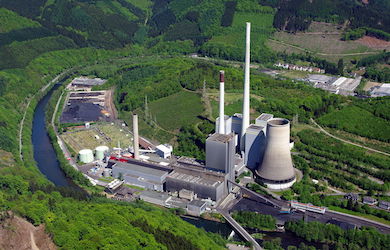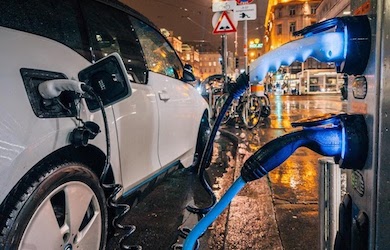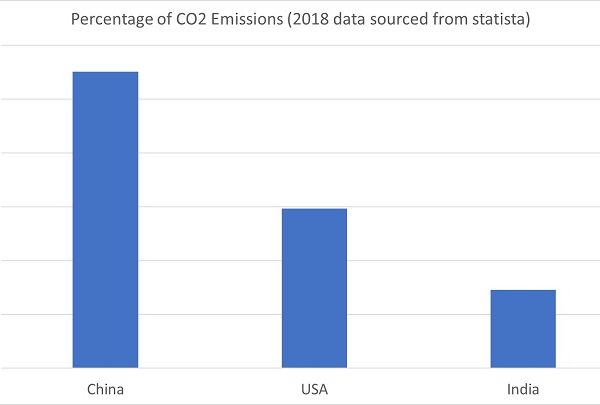Over the course of the last several months the United States of America (USA), along with the rest of the world has been hit with an increase in gas prices. In terms of the USA specifically, the increase in gas prices due to the following key factors:
- High energy costs caused by the Russian invasion of Ukraine. [1]
- Supply chain crisis
- Consumer demand, following the pandemic (less working from home)
The emphasis on connecting gas prices to the violence in Ukraine is a recurring theme in post-invasion green messaging, with many advocates stressing that long-term application of alternative energy plans would help decouple the US from international conflicts and give foreign affairs officials more leverage and autonomy. [2]
Some drastic increases on the US economy include:
- Costs of used cars being 41% higher this year (2022) than last year
- The cost of a gallon of gas reached up to $6 in some areas.
- High inflation has gone up in the USA by recently, a large factor contributing to that is the cost of energy.
With the cost of living increasing significantly, the US sees the urge to act towards an economically sustainable future, with green energy groups seeing the opportunity to accelerate popular support for a transition from fossil fuels. The general public and those passionate about advocating for green energy are not the only ones urging for a change. The CEO of Tesla, Elon Musk and United States Secretary of Energy, Jennifer Granholm are urging companies to increase production and raise output. [3]
Why is it so Important to Act Now?
The world is currently in the midst of a significant climate change crisis, which mainly has been caused by human activities relating to burning fossil fuels. At the current level, more than 1 million species are at risk of extinction, the air quality has critical influence on human life, such as water shortages and increased fire threats. If the above reasons were not enough for the public and its leaders to act, the economic crisis which is currently looming over us certainly will.
Jeffrey Logan, the Associate Director of Policy and Analysis at CU Boulder’s Renewable and Sustainable Energy Institute shares his expertise on the energy policy analysis, low-carbon market development, energy security, and strategic planning stating that “the current situation—like every energy crisis we face—tells us that we should have taken stronger action much earlier to lower our reliance on fossil fuels. If we had taken bolder action starting 12 years ago, when the costs of wind and solar fell on par with fossil alternatives, we could have largely insulated ourselves from today’s rising prices and climate-driven disasters.” [4]
The drive for change amongst public opinion is certainly the highest it has been, where there is a desire to seek renewable energy investments that improve sustainability and support the economy going forwards. Many options have been considered and talked through; however, not enough action is taking place to tackle the issue at hand.
What Are The Options?
To start off, Jeffrey Logan discussed with the CU Boulder team that “there really are few options to rapidly shift away from oil and gas in the timeframe needed. U.S. oil and gas production can’t be ramped up much in the short term, and some U.S. producers have also said they won’t emphasize output growth at the expense of profitability. The shift to clean energy can be accelerated but it will still take years to make a significant dent in the reliance on fossil fuels. Many observers note the lack of stronger federal policies in the U.S. to promote the more rapid deployment of renewables. The challenge of building new transmission lines—which aids in the integration of variable wind and solar on the grid—is another barrier. Most of the clean energy substitutes will take time to roll out, but investment in energy efficiency, electric vehicles, solar and wind energy, longer-duration energy storage and replacing natural gas boilers/furnaces with heat pumps can make cost-effective contributions if pursued vigorously. Solutions are out there.” With this in mind, there are certainly various options to act now with long and short-term positive impacts on the economy and the environment.
President Biden suggested a route which he believes could slow inflation and cut greenhouse gas emissions all at the same time Biden’s plan is to invest in clean energy and ‘American manufacturing’. This however will only see a long-term improvement on the economy and the environment; therefore, it won’t provide immediate solutions to the current crisis. Nevertheless, while fossil fuels are inherently inflationary, clean energy sources, such as wind or solar power are inherently deflationary. As such, fossil fuels get harder to extract all the time due as humans depleting the most easily accessible oil and gas reserves; oil prices are largely controlled by the Organization of Petroleum Exporting Countries (OPEC), which can cut supply and raise prices at will. Renewable energy, on the other hand, can have a large up-front capex cost and then becomes virtually free, with low opex costs in the form of maintenance and repairs, and no one is required to pay for the sun to shine. [1]
In the short-term however, many countries already have been driven towards reliance on fossil fuels and nuclear energy from other countries, such as Saudi Arabia to tackle the current energy crisis triggered by the Russia’s invasion of Ukraine. This is likely to last for as long as the war in Ukraine continues. In terms of the US specifically, the advantage is that they are relatively self-sufficient within the energy sector; they have their own gas, which is relatively cheap, although they do import oil.
Conclusion
With the inflation rising globally, individuals will seek to reduce their consumption of power and unnecessary electricity to tackle the crisis [4], as far as direct action with a quick and significant impact goes, this is all that can be done right now. While there are sceptics of the green energy movement remain unconvinced that the industry has enough strength or output to overturn oil’s supremacy worldwide, over the long term, the current energy crisis is likely to accelerate the transition to cleaner, non-fossil sources as countries look to insulate themselves from price spikes while focusing on sustainability.
About Pager Power
Pager Power undertakes technical assessments for developers of renewable energy projects and tall buildings. For more information about what we do, please get in touch.
References
[1] O. Shannon, (Mar 2022), Inflation is at a 40-year high. Is clean energy the solution?, Salon.
[2] T. Nerozzi, (Mar 2022), As gas prices skyrocket, green energy groups see an opportunity for rapid change, Fox Business.
[3] CU Boulder Today, (Mar 2022), How rising gas prices emphasise the need for renewable energy, University of Colorado.
[4] M. Tamim, (Mar 2022), West will ultimately switch to renewable energy, The Business Standard.
[5] Sansone, T. (Feb 2019), Climate Change Mitigation, WikiMedia. Accessed via: https://commons.wikimedia.org/wiki/File:Climate_change_mitigation_icon.png



